What do I actually work with? By popular demand (or well, one person has asked), I (Helena) thought I would tell you a little more about my job. This is a travel blog, but we thought you might also want to know a little more about us as people. So today it will be a little more about my other job. I tell you by asking myself some questions!
Table of contents
1. What have you studied?
I've been studying a lot, and if I add it all up, it's 11 years at university. Apart from taking various independent college courses (Icelandic, Danish, linguistics, creative writing, Norse mythology, eating disorders and ... astronomy), my most important courses are:
- Leg. occupational therapist (3 years, Bachelor's degree)
- Public health scientists (2 years, Master's degree)
- Med. D. in Public Health Sciences (4 years, postgraduate programme)
During my training as a public health scientist, I chose to specialise in eating habits and physical activity, and as a PhD student I focused on people with intellectual disabilities.
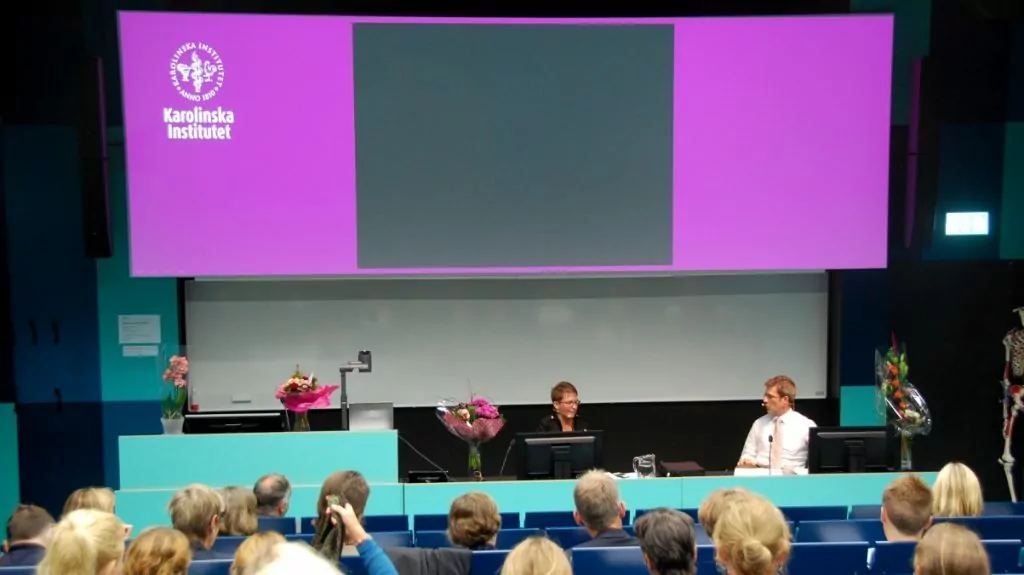
2. Where did you study?
Of my 11 years at university, I have spent 8-9 of them at Karolinska Institute (KI) in Stockholm. I have also worked at KI for a few years, so it is definitely my "home university". But I have taken courses at some other universities as well:
- Stockholm School of Health and Welfare (no longer exists)
- Stockholm University
- Uppsala University
- Södertörn University
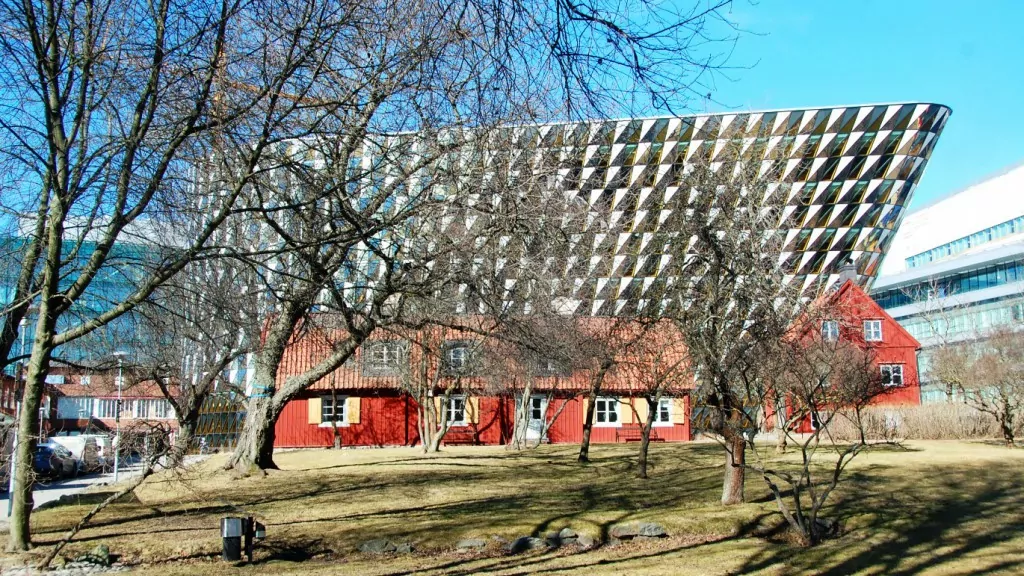
3. What does your programme involve?
Leg. occupational therapist is a profession where you start from the individual's conditions and, for example, adapt the environment, try out aids or give the individual support to develop their abilities. I've only been working as an occupational therapist for two years, and that's a long time ago.
Public health scientists means working on health at the population level. You work overall to improve the health of the population by, for example, mapping, analysing and running health promotion projects. I have chosen to specialise in eating habits and physical activity, but as a public health scientist you can also work with, for example, alcohol, tobacco, sleep, stress, mental health, injury prevention or infection control.
4. What has your doctorate been in?
I have a doctorate at KI on the subject of public health sciences which (although I am not a doctor) means I have the title of Doctor of Medicine. My thesis was about an intervention to promote food and exercise-related health among people with intellectual disabilities living in group homes or sheltered housing.
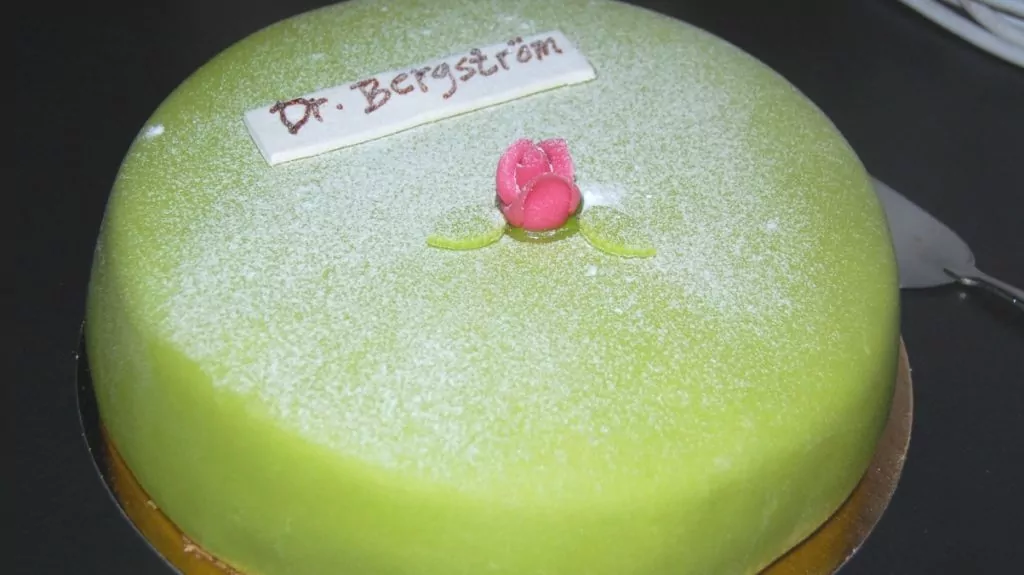
5. Where have you worked?
As occupational therapist I have worked in psychiatry. I first worked at Huddinge University Hospital and at the eating disorder clinic, and then at the Lövstalund treatment centre, where we took in patients with addiction and serious mental disorders.
As public health scientists I have had two main employers: Stockholm region (formerly Stockholm County Council) and Karolinska Institute (KI). Within the region, I have worked at various knowledge centres and at the Regional Management Office. At KI I have worked at the Department of Public Health Sciences.
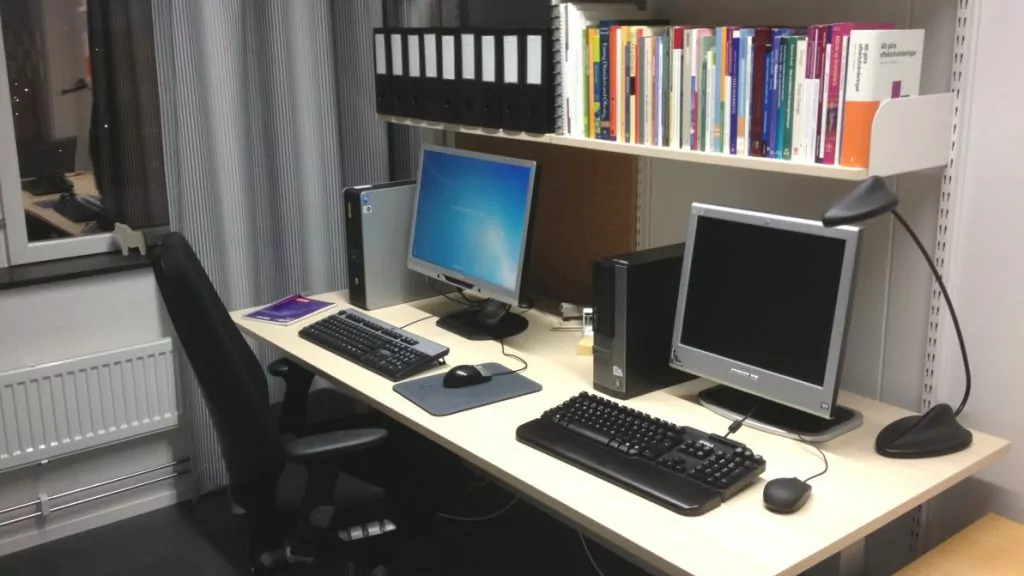
6. What have you worked on as a public health scientist?
I have mostly worked with methodological development and evaluationwhich involves developing health promotion projects and then testing them in real environments. It evaluates effect (e.g. how does it affect routines, knowledge, behaviour or health); and process (how was it implemented and how was it perceived?).
In 2017, I did a (for me) different job at the Regional Management Office. Here I worked as strategist in the field of disability, which meant that I worked to ensure that all of the region's (formerly the county council) organisations were accessible and enabled participation for people with disabilities.
You could say that I mostly work with:
- Eating habits and physical activity
- Disability
- Methodology development and evaluation
- Qualitative research method (e.g. interviews)
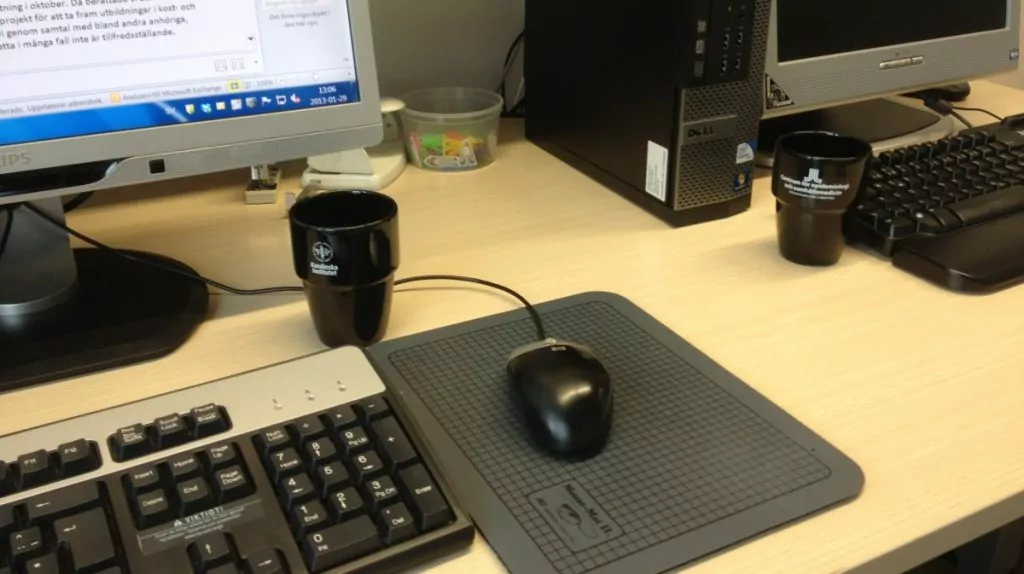
7. Where do you work now?
I work in the Stockholm Region, at a knowledge centre called Academic primary care centre. This is a centre that provides training, research and development to staff and students in primary care units (health centres). I'm working a bit 'off' the main focus of the centre, on two different projects.
8. What do you do at work?
I work on two different projects: "Health matters", which is aimed at people with LSS and "Physical activity on prescription for people with mental illness".
"Health matters" is a health promotion programme with health education for people with LSS. The programme was developed in the USA. We have translated and adapted the programme to Swedish conditions, and are evaluating it in municipalities in Stockholm County.

'Physical activity on prescription for people with mental health problems' is a project to test a model of clinics with health educators outside the health care system. Healthcare professionals write prescriptions, and the person who received the prescription brings it to the health educator who helps them get started. In this project, I only work with qualitative evaluation, in the form of interviews.
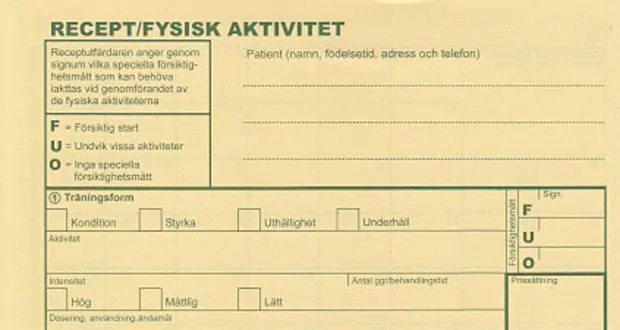
9. do you do research?
In the knowledge centres where I work, development work and research often go hand in hand. Not everything we do is research, but if a project can be interesting also from an international perspective, we often also try to write a scientific article about it (i.e. publish the research results in an international scientific journal). Between 2007 and 2019, I have published 12 scientific articles.
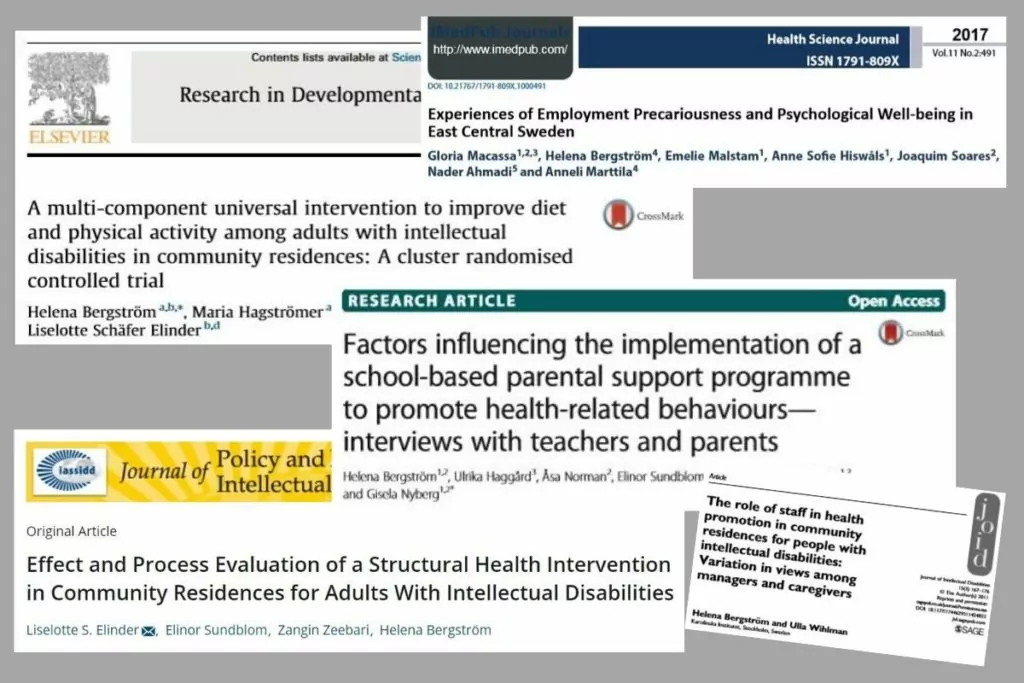
10. How much do you work?
Right now I am working 80 per cent. I am a project employee, working 50 per cent on the "Health Matters" project and 30 per cent on the "Physical Activity on Prescription" project. I will probably work 50 per cent this summer (i.e. only on the "Health Matters" project).
11. How can you combine work with travel blogging?
I have turned down many opportunities at work, in the form of various permanent full-time positions and the opportunity to pursue an academic career. It is possible to combine the job with the blog, but I cannot both focus fully on work and career and on the blog. Because we spend so much time and effort on the blog, I'm taking a step back at work.
I have fallen to work as a project worker. This means that I can commute between different levels of employment by jumping in and out of different projects at different times. During the summer, for example, I will only be employed at 50 per cent, which makes it easier to take a long trip with the camper van.
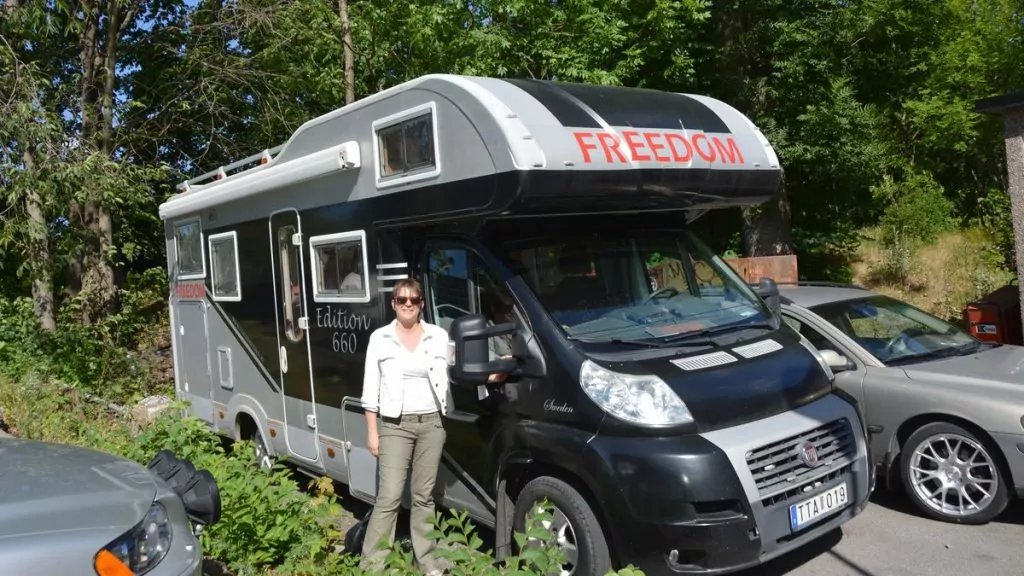
12. What are your future plans at work?
Right now I am working on fun projects and with great colleagues. My job is always interesting and challenging. At the same time, I am passionate about travelling and the blog, which is especially fun because it is a joint project with Peter.
I don't mind combining as I do now, but it's always a balancing act to get it right. Because I have chosen to work in projects, my life is also very insecure. I have received many job offers so far, but my employment is short and insecure.
To be able to continue combining, without having to stress or worry too much, we would need to have a more secure income through the blog.
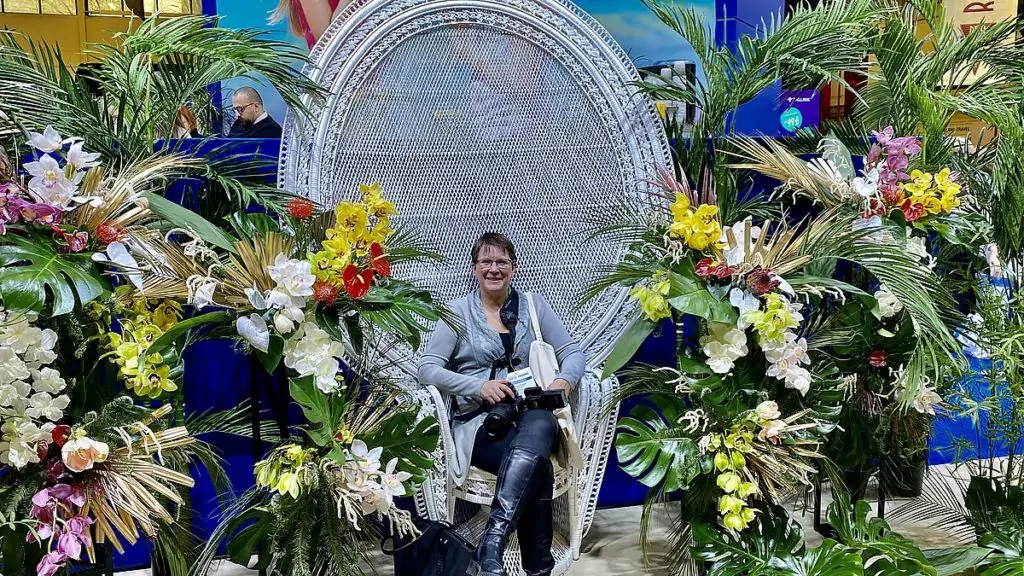
So, now you know a lot about me and my job. What do you do, or what have you done in your life?


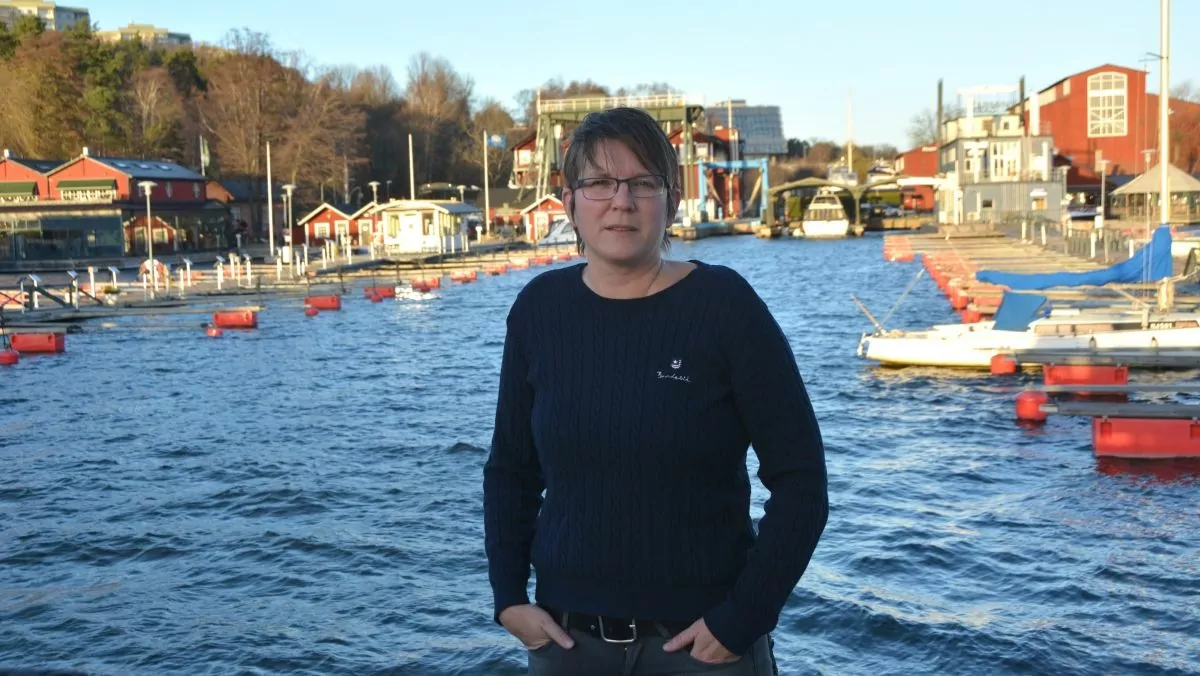









Anita Wag Agrimanaki says:
Interesting Helena!
18 February 2020 - 8:38
Helena says:
Glad it was appreciated! 🙂
18 February 2020 - 17:35
The Shetland Wife says:
But what interesting work you have (to my ears!) and important! I still don't know what I'm "going to be when I grow up" (I'm "only" 35)... Right now I'm mostly a shepherd, a full-time mum (including tasks such as a long-distance taxi driver) and a cabin renter.
18 February 2020 - 9:12
Helena says:
Your comment ended up in the rubbish bin at first, but I found it after a while! Shepherd sounds cosy! 🙂 That thing about knowing what to be when you become "big", not easy ... 😉.
18 February 2020 - 17:36
Maria / MagnoliaMagis says:
I just want to say that my mum has always said that she doesn't know what she's going to be when she grows up... Which I took with me until I realised that I'm good enough as I am and that being a mum and "field service" is one of the most important jobs you can have!!! What would it look like if no one did the hidden jobs? Housewife, mum, grandmother, cleaner, garbage collector etc .... You don't have to be anything..you are already amazing!
19 February 2020 - 10:47
Anna / boihusbil.se says:
Nice to read a personal post :).
I am a buyer at heart, but have been running a web agency for 11 years. I am passionate about structure, order and clarity, no matter what work I do.
18 February 2020 - 9:28
Helena says:
Perfect to like order and tidiness! That's probably what you're looking for in many contexts 🙂.
18 February 2020 - 17:37
Ditte says:
Interesting reading! and nice to know more about both your background and the projects you now run today.
I decided to leave permanent employment when we returned from Beijing in 2011 and I was 61 years old. But of course I have worked after that when and if I wanted to. I have a degree in tourism and am a gymnastics director. I also have a couple of other teacher training programmes with me, including special needs teacher and Swedish as a second language (I have taught in all stages of primary school.) I have also worked as a school manager for periods. So many years of studies at university level and in rounds it has become. Now as a retiree, I work a lot in the travel agency sector and the tourism industry. Really great fun!
18 February 2020 - 10:12
Helena says:
You have really had time for everything! So fun that you are engaged in exciting jobs now too! 🙁
18 February 2020 - 17:39
Sandra Lifsresor.se says:
It's nice to get an insight into another world, far from my communications consultancy. ?
18 February 2020 - 12:15
Helena says:
And a bit of fun to write about something else than travel blogging 😉.
18 February 2020 - 17:40
Ruth in Virginia says:
There were lots of students and researchers, and it sounds like
really interesting with everything you have done and are doing. Amazing how you
have been able to combine your jobs with "Freedomtravel". But I
is happy that you can. 🙂
In the 1940s, if you wanted to go to secondary school,
they were allowed, after 6th grade, to take a test in maths and essay writing and some other things. Those who did not pass it,
had to go to grade 7, and that was the end of their education.
I needed to get an income as soon as possible, so went on the
Commercial high school in Norrköping. There were really only three
occupations for women at that time - secretary, nurse or
teacher. So when I was 19 years old, I had a secretarial job in Stockholm.
shared an apartment with another office rat. -Then to the United States.
Job as driver and companion to an elderly lady; secretary
at a "country club" and. eventually, Sec. in San Francisco.
After I got married, I didn't work. Most 50s wives were,
what my brother called, luxury wives. But 6 years as a scout leader and
many volunteer jobs were not exactly a luxury.
Became a "teacher" in the end, when I slipped into teaching Japanese.
school children in English. That was in Indonesia. Those who wanted to go to the International School in Bandung had to know English. My first
student came in, and I became popular with the Japanese. Could have had
students every day. 🙂 Felt proud!
After we came back to the USA there were many temp jobs, when I
had the time and inclination, which was fun. Have always done volunteer work
stopped, when I turned 90 after having done about 30 years at an up-scale
flea market.
18 February 2020 - 16:12
Helena says:
Interesting to hear what it was like in the past! Different in many ways, not least for girls and women. And what an exciting life you have had! Fun with the Japanese students! 🙂 And impressive to keep going with volunteer work until 90!!!!
18 February 2020 - 17:43
Goatfish says:
Nice to read a little more personal information about you! You have a solid background and many irons in the fire and choices to make. It's important to feel good about your choices too.
I graduated from high school, then attended the business school's linguistic secretarial programme. Got a job straight away as a foreign correspondent, then a secretary and then an insurance fund administrator for many years. Took a high school diploma and a few college credits plus some interesting programmes almost constantly. Took a driving licence for heavy trailers when I was 61 😀.
Stopped working at 60 because then my husband and I would do lots of travelling and excursions with the caravan, got 5 years with him.
Now I have great fun, responsible volunteer jobs in two organisations and a few other things, so I don't have time to twiddle my thumbs!
18 February 2020 - 17:18
Helena says:
Interesting to hear your job history! 🙂 Impressive with the driving licence for heavy trailers I think, well done! And fun with all the volunteer jobs you have now! 🙂
18 February 2020 - 18:16
Annette says:
What fun to read what you do in addition to running Freedomtravel! And funny that you prioritise getting quality of life and not just say yes to all the offers that others might bite on for the sole reason of not missing out on anything.
18 February 2020 - 18:02
Helena says:
Glad that it was appreciated that I wrote about this! 🙂
19 February 2020 - 6:48
BP says:
It is actually really fun to read a really personal post here again. I remember Peter's post about his life, but he divided the stories and there were many funny posts, I thought.
Very interesting here about your projects, and I understand that your skills are sought after. I did not realise that you had published so many scientific articles. With this "publicity" you should be able to get project offers abroad, because then you could combine travelling and blogging.
I think it will be difficult to make money from the blog. Unfortunately the wrong genre if you know what I mean. Fashion, interior design and cosmetics probably have better conditions there - unfortunately.
Why don't you both work 50 per cent? This would significantly increase your financial security.
18 February 2020 - 18:23
Helena says:
In any case, it will be a small combination in the spring when we go to Germany for me to lecture at a university there 🙂 You may have a point about the wrong genre, but we do not give up so easily 😉 We have talked about both working, but it is not easy to achieve in a good way,
19 February 2020 - 6:52
Ninny says:
So interesting to know a little (a lot!) more about what you do. Wow, you've had so much time, both education and work experience!
Seems like an interesting and important job, being concerned about your health is important for everyone, and makes you feel better both physically and mentally!
I work as a preschool teacher, and have done so for many years. I love my job, working with children is a privilege! We who work in preschool (and school) have an incredible responsibility and a great mission in shaping our future!
As someone who works with the younger children (three to five year olds), I see my biggest task as giving the children a foundation to stand on, in the form of learning compassion, caring for each other, and feeling that you are good enough as you are - to give the children good self-esteem. That we need each other and to take care of each other and our planet. The vast majority of children spend most of their childhood at preschool, so those of us who work there must really like our job and like the children. Unfortunately, in recent years we have received fewer and fewer resources and larger and larger groups of children.
But as I said, despite that, I really love my job!
18 February 2020 - 19:56
Helena says:
How nice to hear about your job! All of you who work with children in different contexts do a fantastically important job! It's a shame that there are fewer resources. To give children a good start is to prevent later problems. I think it's wrong to skimp too much there. But often that's exactly how it is, you cut back on all prevention ... which has negative consequences in the long run. Perhaps not only for the children, but also for you who work. Anyway, glad you like your job!
19 February 2020 - 6:58
Matts Torebring says:
Wow, that was a lot! It's fantastic that you had patience and fighting spirit all the way through. Also admirable is all the commitment you put into your blog. Dare I write, that I am one of the few, who only attended 7-year primary school. After that I have had a long journey, forward through life. I am actually proud of my seven years in school. I have done very well and progressed through life. I, 73, am still "passionate" about my job....
18 February 2020 - 20:27
Helena says:
You have really built up a lot during your life Matts! So you also know what it is 🙂 Impressive what you have achieved and that you still keep going!
19 February 2020 - 7:00
ridge says:
Interesting and nice to know more about you,
We got to know a lot about Peter during the previous Happy Friday 🙂.
Your job sounds like something I would like to work with if I could / had the opportunity, is interested in the food, diet, activity and movement, I believe that to feel good you must not only eat well or exercise properly but a combination of everything.
I would like to train as a dietary counsellor.
But this is not a possibility at the moment.
I have to get my imagination right first 😉 .
18 February 2020 - 21:43
Helena says:
I completely agree with you, it is certainly a combination of things that affect how we feel. In addition to food and physical activity, we are affected by things like sleep, stress, how you feel in relationships, how you feel at work, etc. etc. You can influence a lot, but then of course there are things that you cannot influence such as age and certain diseases you suffer from, etc. But in any case, good food and exercise can often help us to feel better!
19 February 2020 - 7:07
Emma, sun like sun? says:
I have long wondered how you get everything together. maybe not so much money-wise but more employment, time, projects, blog, leisure, family. health ... Now I know at least a little more. And gosh how much you have educated yourself! The apple has not fallen so far from the tree, I understand.
I completed a full classical humanities programme at secondary school and started working as a telephone operator/receptionist. Then I worked for many years in the same group but with many different tasks: receptionist, telephonist, import/export management, order management for export, product and quality coordinator (internal audits of the company's quality work and the like), graphic design, proofreader, financial assistant, administration in general, writing texts, keeping track of/being responsible for article registers, etc. I've been involved in a lot of cleaning up data lists ... I'm one of those typical all-rounders who gets to train new employees and "Check with Emma, she knows". I had to try not to get involved in everything myself, it was simply too much.
Now I take care of most things around my husband's company with orders, articles, customer questions, information folders, etc. to be done. Right now it is a lot, goes in waves.
So! Now I have to stop writing here, have to make a quote!
19 February 2020 - 8:59
Snows says:
Interesting to know a bit more about you and what you do. A solid CV to say the least and interesting tasks.
I studied 2/3 of my law degree and worked for several years in property management. Then I chose the teacher training programme, which was supplemented by more courses in each subject. It turned out well too.
19 February 2020 - 9:48
Maria / MagnoliaMagis says:
Thanks for an interesting post! Always fun to get to know more about the people behind (..says she who never wants to be in the picture...;D). You are a person who constantly wants to develop and learn more, I understand! Same here! Norse mythology sounded exciting! We have two grandchildren in Gran Canaria with old Swedish names..Ragnar and Freya. A lot of runic writing and Viking sagas will be there.
I myself have worked in preschool and school, but in between / after studying further to SPA therapist, wellness therapist, meditation coach, been to a spiritualist centre on courses in England, Silversmithing, Crafts and design, Folk music courses, holding dance courses... and in all areas I have also worked as a self-employed person.
It is easy to help others with ill health but oh so difficult to do it yourself!!!! For a long time I have been ashamed that I have lost the spark and not been able to cope, ie gone into the wall. What you / you do with health care on prescription is super! I have all the knowledge in relaxation, mindfulness, nutritional physiology, exercise, etc. but have not had the starting point. There, outsiders are very important! That you get help. Another factor I would like to highlight in this is how good it has been to move out in a caravan in nature! There should be retreats for those with mental illness to get out that way. A lot of stress that was released. Partly because of the minimal area where you do not have to / should anything and partly the sea and the forest.
Interesting reading and good luck for the future!
19 February 2020 - 10:41
Ama de casa says:
Very interesting reading! OJ what you have studied and worked/worked. I still don't realise that you manage to keep the blog going as well (together with Peter) - impressive!
My professional career started when I was 14 as a balloon blower at Domus. But we didn't have any of that funny gas, so we inflated the balloons using a "backwards" vacuum cleaner.
Then I did a summer job counting fish in a fish farm. There were signs saying how many there were in the 20 ponds, like 17,000 to 20,000 per pond. Then we would check if it was correct. Really a job to count. Haha!
When I had finished my second, two-year upper secondary school programme ("Zookeeper for zoos" at Kolmården), I first worked at Lycksele Zoo and when we moved to Stockholm, it was Skansen.
After a few years in zoos, Anders convinced me to apply for a one-year programme for programmers. With the biggest wrinkle in my nose imaginable, I started the programme. But it was fun!
Since then, I've been working as a programmer, partly as a consultant in our own company (though we've never worked with the same clients).
Since a bunch of years back, however, I have the best profession I've ever had - Ama de casa. A housewife, that is 😀.
But right now I'm probably having an extra hard time as Anders broke his arm in the Sierra Nevada on Monday...
19 February 2020 - 11:23
Elisabeth says:
It's nice to know what you do/have done. I worked mostly with personnel management/personnel issues and work environment. In another word, I can write change management.
19 February 2020 - 17:51
Lena - good for the soul says:
Interesting to learn more in depth.
I work as one of those grumpy economists. Hopefully I don't live up to the criterion very much. 🙂 We have a lot of fun at work. I am an accounting manager where, together with my three colleagues, I am responsible for the group's Swedish companies. The owner is listed on the American stock exchange, which places extreme demands on documentation even at our level. Both interesting and instructive, but also extremely frustrating.
Hug Lena
20 February 2020 - 5:59
Anna, New York - My Bite of the Big Apple says:
This was very interesting to read! I am very impressed with your solid education. Some of it I already knew, others I didn't.
Admirable that you have time / can blog so often when you also have the other job. But I understand that the passion exists!
My educational and professional journey goes from my grandfather's old typewriter via teaching and information jobs to my own communications agency. 🙂 Maybe you have already read about this. If not, there is a summary here: http://www.falkblick.se/2018/01/tioarsjubileum-for-falkblick-ar-2018.html
20 February 2020 - 12:16